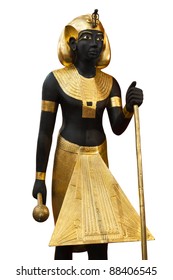

#Guardian's egypt tv#
Following deadly clashes with protesters in Tahrir Square, in November 2011 Tantawi made a live TV address promising a speedier return to civilian rule. Dozens were killed in other street skirmishes, hundreds were arrested and more than 10,000 civilians were sentenced by military tribunals. In October military armoured vehicles ran over and killed protesters in front of the state TV headquarters. For the first time, Tantawi was singled out for rebuke when speakers called him a dictator and demanded his resignation. This protest was called the “Friday of warning”. The initial euphoria with which Egyptians had greeted the military takeover had cooled, and also in April 2011 many thousands of angry demonstrators congregated in Tahrir Square, Cairo, for one of the largest demonstrations held since Mubarak’s downfall. The sentence was subsequently reduced, and he was released in January 2012. Three days before he was arrested, he published a post calling on Israelis to “stop supporting Egyptian militarists like Tantawi”. In April 2011, a 25-year-old blogger, Maikel Nabil, was given a three-year jail sentence after accusing the army of torturing protesters and working to undermine the revolutionary movement. The decision freed 60 convicted Islamist militants who were apparently described as political prisoners in a rare admission by the state.īut there was also a campaign to crush dissent. The first presidential pardons were issued in March 2011 and signed by Tantawi as defence minister. Tantawi and the SCAF were eager to reduce tension by appeasing the Islamists. He had served in three conflicts with Israel: the 1956 Suez crisis and the 19 wars. He promptly had five phone discussions with the US secretary of state, Robert Gates, in which he assured Washington that Egypt’s cordial relationship would remain intact. Mubarak was subsequently swept from power, and in February Tantawi was named head of the Supreme Council of the Armed Forces (SCAF) that took over control of Egypt. On 29 January 2011, after Mubarak sacked the cabinet in a vain attempt to calm mass protest, Tantawi, already the defence minister, was appointed deputy prime minister. As a result of the peace agreement signed by Egypt and Israel in 1978 the US gave the former annual military aid of $1.3bn, and WikiLeaks had revealed a critical memo from the US ambassador in Cairo, Francis Ricciardone, describing Tantawi as “frozen in the Camp David paradigm and uncomfortable with our shift to the post-9/11 global war on terror”.Īn anxious US had been urging Tantawi towards a broader and more flexible partnership “based on stated strategic objectives, including border security, counter-terrorism, peacekeeping and civil defence”.

Tantawi’s suitability for leading it was viewed with trepidation in the west. He was respected for his decency and clean human rights record, though he became the focus of anger in his own right when demonstrators returned to the streets to protest against the army’s handling of the transition. Field Marshal Mohamed Tantawi, who has died aged 85, took charge of Egypt from the ousting of its president, Hosni Mubarak, in February 2011 until a return to democracy with the election of Mohamed Morsi of the Muslim Brotherhood in June 2012.ĭespite being a pillar of the former regime – “Mubarak’s poodle” to some – Tantawi was given the job in response to the demands of a huge protest movement.


 0 kommentar(er)
0 kommentar(er)
